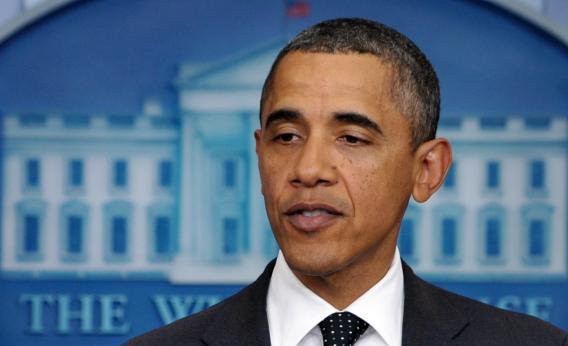As the presidential race moves from preseason to the real event, it is time to explore the issues that will actually shape the campaign debate. Of course, in the immortal words of James Carville, “It’s the economy, stupid.” But what does that exactly mean to voters? Which of the many aspects of our current economic debacle will dominate the discussion? Will we shift from a deficit debate to an inequality debate? Will the continuing housing crisis and foreclosure scandals grab the public attention? Will the European crisis trigger another cataclysm akin to 2008? You can be pretty certain that the campaign and its debates won’t follow a predictable straight line. That means candidates, campaigns, and citizens need to figure out what issues might be lurking below the surface, waiting to explode with perhaps volcanic power.
Here are two such issues. Both are familiar, yet their resurgence in slightly different form could redefine the political landscape. The White House would be wise to think now about how to own them if they reappear.
The first is the health-care reform law. The determinative majority opinion, written by a conservative judge of the D.C. circuit, that the act was within the constitutional power of Congress should have been no surprise. Most scholars have argued that the Commerce Clause and the “necessary and proper” clause combine to create an almost ironclad defense of the act. Judge Silberman’s opinion on the core constitutional issue makes it much tougher for Justice Kennedy—the perceived swing vote on the Supreme Court—to go the other way, since Silberman travels in the same intellectual and ideological world as Justice Kennedy. While Silberman’s opinion doesn’t guarantee Kennedy will vote to uphold the law, it surely is an important premonition.
But a Supreme Court victory for the president would not be the end of the story. It would change the nature of the political debate, not eliminate it from the presidential race. The majority opinion by Justice Kennedy upholding the law could well distinguish between Congress having the power to act and the wisdom of doing so. He could highlight the many acts of Congress that are constitutional yet have ultimately been deemed unwise. Thus a victory for health-care reform could set up a powerful argument for the Republicans: If you want to get rid of the health care act—and the dreaded individual mandate—you had better vote for us. A Supreme Court defeat will be fodder for the Republicans, who can claim that only repeal by a Republican Congress, signed by a Republican president, can save the nation from the supposedly harmful effects of the bill.
So how should the White House prepare for victory? It should move beyond the rather antiseptic debate about constitutionality—leave that to the lawyers—and make a full-throated defense right now of the individual mandate. Lay the foundation now for the argument that the individual mandate is right! Any hesitation or lack of confidence on that point will weaken the president and sacrifice one of his most effective lines of attack against both Mitt Romney and Newt Gingrich. Each has supported the mandate in the past, flip-flopped on it numerous times, and knows intellectually that it is correct. If the White House runs from the mandate, the other side will define the issue and use it as a wedge.
The second topic that may re-emerge is one that caused the president grief with his own base last year: the Bush tax cuts. Even though they expire at the end of 2012, and the failure to act—the one thing Congress does well—will lead to a slight escalation of marginal tax rates for the wealthy, the White House is still going to be caught in the same vise as it was in 2010. Failure to act will also raise tax rates for the middle class. With an anemic economy and marginal job growth, the president will not want to seek a middle-class tax increase. So the debate will be framed just as it was last time. But this time, perhaps, the White House will embrace the critical argument for equity that has so far been largely ignored. Perhaps, emboldened by the success of Occupy Wall Street, President Obama will be more willing to fight. Perhaps the president could turn tax cuts for the rich into the defining issue of the campaign.
On both health care and the Bush tax cuts, the president has lost early rounds. Each issue is almost certain to return next year. Running away from them will lead to a replay of the early defeats. Grabbing each with forceful conviction could be a winning strategy.
